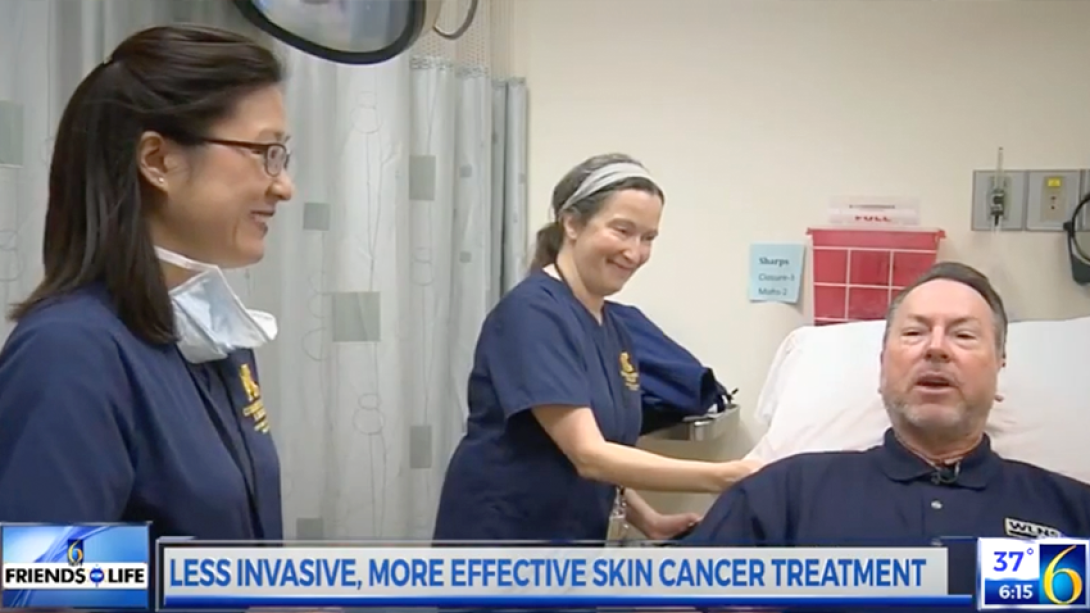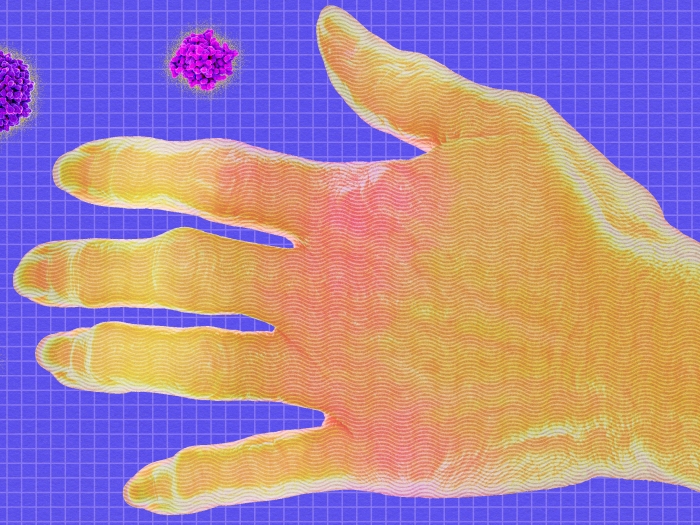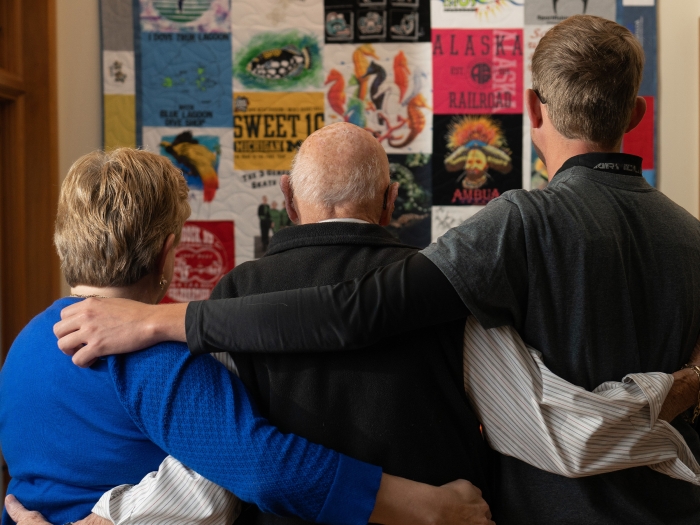Through an on-camera procedure to remove a cancerous spot, Lansing broadcaster Jim Geyer encouraged viewers to watch for signs of skin cancer.
3:09 PM
Author |
Broadcast meteorologist Jim Geyer decided it was time to raise awareness about skin cancer last fall, when he brought the cameras into the clinic with him.
Geyer shared with his Lansing, Michigan, viewers exactly what he went through to have a spot of skin cancer removed from his ear. He hadn't heard of Mohs micrographic surgery before, but he would become very familiar with this preferred treatment option for many nonmelanoma skin cancers.
This Skin Cancer Awareness Month, Geyer talks about why he's glad he was so personal with his TV audience.
What led to your Mohs procedure?
Geyer: I lived in Florida for five years, between the ages of 5 and 10. I was always playing outside with just shoes and shorts on, so I've been very watchful of changes on my skin. I have regular checkups with my dermatologist. Just about every visit, I've had to have small spots of actinic keratosis (precancerous spots on the skin) removed from the facial area. I was shocked and surprised last September, during my biannual checkup, when a spot of skin cancer was found on my ear. I had squamous cell carcinoma.
Describe the process from that diagnosis to your full recovery.
Geyer: My doctor recommended the Mohs procedure, so I set up an appointment with the University of Michigan Rogel Cancer Center. In November, Kelly Harms, M.D., performed the surgery (and described what she was doing on camera!).
She removed the cancer tissue and examined it in a microscope, where she saw there was still cancer left in my ear. She then took out more, re-examined my ear, and determined the cancer was gone. The recovery was easy, since they didn't remove any extra tissue. Two weeks later, I presented the story on-air of my experience at the Mohs Clinic and what I learned.
How did it feel to share a personal health struggle with thousands of TV viewers?
Geyer: This procedure just happened to occur during Men's Health Month. I decided it made sense to do a story on WLNS-TV about my journey from cancer discovery to cancer surgery to being cancer-free.
I brought a photographer with me on the day of my Mohs procedure. I wasn't afraid, even though I had never gone through this procedure. I knew this was a way to tell my story, and, at the same time, let viewers know that when cancer is detected early, it can be removed with little interruption of your daily life.
What has been the community response to your story?
Geyer: Since my segment aired, I've learned that the men's health series on WLNS-TV won a regional Edward R. Murrow Award and a Michigan Association of Broadcasters Award for Mini-Documentary or Series. It also won a Public Service Award from the Michigan Associated Press. I'm very happy to be part of that series, knowing it reached many viewers and possibly encouraged some of them to get a checkup for skin cancer or precancerous skin cells. Earlier this week, I had someone come up to me and ask, "Hey, Jim, how's your ear?" I smiled and proudly replied, "It's just fine."


Explore a variety of healthcare news & stories by visiting the Health Lab home page for more articles.

Department of Communication at Michigan Medicine
Want top health & research news weekly? Sign up for Health Lab’s newsletters today!





